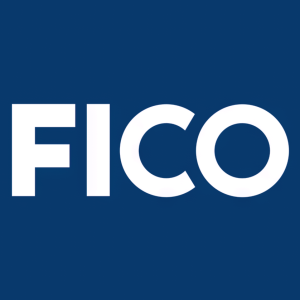New FICO Survey: German Consumers Demand Better Protection Against Online Scams
German consumers expect greater protection from their banks in the face of increasing real-time payments (RTP) and growing fraud activity
Highlights
- Additional security checks: Half of consumers want more protection mechanisms for bank transactions - a clear signal to banks to strengthen their security processes.
- Willingness to switch banks: Two out of five customers would switch banks if fraud cases were not resolved transparently, emphasising the importance of transparency and fast problem resolution for customer loyalty.
- Concerns about real-time payments: One in four customers think current security measures for real-time payments are inadequate, highlighting the need for banks to take action to boost trust.
More information: https://www.fico.com/de/latest-thinking/ebook/2024-scams-impact-survey-germany-german
Real-time payments on the rise - security concerns remain
Real-time payments are gaining popularity in
Consumers demand stronger protection from banks
With increasing fraud and the growing threat of fraudulent transactions, expectations of banks are rising. Almost two-thirds of respondents (63 per cent) said they had received a text, email, or phone call they believe was part of a scam in the past year, an increase of 12 per cent compared to 2023. 27 per cent of respondents reported that people close to them had also been affected by fraud. In addition, 13 per cent of respondents reported financial losses due to payments for products or services that were never delivered - an increase on the previous year.
In view of these developments, consumers believe that banks have a duty to take more comprehensive protective measures. For example, 43 per cent of respondents cite improved fraud detection systems to prevent fraud as the top action a bank should take to protect them from scams. A further 15 per cent would like to see more frequent warnings about known or emerging fraud scams, a specific ‘waiting period’ for large transfers or the active rejection of high-risk transactions.
Responsibility for losses: consumers expect compensation
Consumers also expect clear compensation rules from banks for fraud losses. 65 per cent of respondents believe that banks should compensate fraud victims - either always (33 per cent) or at least frequently (32 per cent). At the same time, Germans also perceive personal responsibility in this regard: 61 per cent state that they would be responsible for their own security if they were to fall victim to fraud. Nevertheless, 14 per cent also see the sending bank as responsible and 13 per cent see the receiving bank as responsible.
“Our survey results show that German consumers have developed a strong awareness of fraud risks and expect comprehensive protective measures from their bank,” says Jens Dauner, vice president and managing director for DACH & Continental Europe at FICO. “Banks can only fulfil these expectations if they use modern, AI-based systems for fraud detection and real-time communication to secure consumer trust.”
Dissatisfaction with fraud management leads to customer churn
For banks in
Channel preferences for fraud alerts - banks must react flexibly
The survey results make it clear that consumers expect flexible communication when it comes to fraud alerts. A growing number (37 per cent) prefer notifications via the banking app, followed by 23 per cent by phone call and 18 per cent by text message.
“Consumer’s communication preferences vary, and banks need to recognize and respond to this,” said Dauner. “They need to reach their customers in real time and via their preferred channels in order to be able to intervene in good time in the event of an emergency. Only in this way can they not only increase customer satisfaction, but also prevent customer churn due to inadequate fraud prevention.”
Methodology
The data referenced here derives from two surveys FICO conducted in 2023 and 2024. Each survey asked more than 12,000 consumers across 14 countries, including 1,000 from
About FICO
FICO (NYSE: FICO) powers decisions that help people and businesses around the world prosper. Founded in 1956, the company is a pioneer in the use of predictive analytics and data science to improve operational decisions. FICO holds more than 200 US and foreign patents on technologies that increase profitability, customer satisfaction and growth for businesses in financial services, insurance, telecommunications, health care, retail and many other industries. Using FICO solutions, businesses in more than 80 countries do everything from protecting 4 billion payment cards from fraud, to improving financial inclusion, to increasing supply chain resiliency. The FICO® Score, used by
Learn more at http://www.fico.com.
Join the conversation at https://x.com/FICO_corp & http://www.fico.com/en/blogs/
For FICO news and media resources, visit www.fico.com/news.
FICO is a registered trademark of Fair Isaac Corporation in the
View source version on businesswire.com: https://www.businesswire.com/news/home/20241120377983/en/
FICO Pressekontakt Deutschland
Maisberger GmbH
Christine Wildgruber / Karl Floros
Claudius-Keller-Str. 3c
81669 München
Tel.: +49 89 419 599 - 26 / -27
https://www.maisberger.com
E-Mail: fico@maisberger.com
Source: FICO







